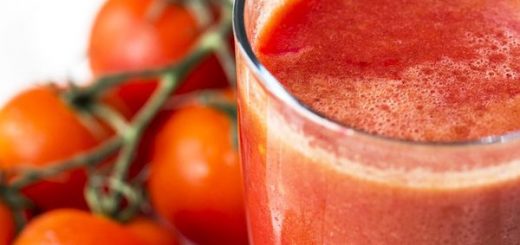Is Mango Healthy? Amazing Health Benefits of Mangoes

Mangoes are loved for their fresh-sweet taste, but are they healthy? Read here whether they fit into a healthy diet.
Is mango healthy?
A mango is very healthy. It is a source of many important vitamins and minerals. Moreover, it is full of fiber. These can help you feel full for longer and support good intestinal health.
What is a mango?
Mango is a tropical fruit and is one of the oldest known fruits. It is a stone fruit because it contains a flattened and woody (inedible) stone stone. Mangoes grow on the largest fruit tree in the world.
Mango trees can grow up to 30 to 40 meters high. The mango originally comes from India, which is still the largest producer of this fruit. Nowadays mangoes are grown in almost all (sub)tropical areas.
Did you know that there are several types of mangoes? There are no fewer than a thousand varieties of mangoes. In Dutch supermarkets you will mainly find commercially grown Tommy Atkins.
If you look at a store or the market, you will also find other types of mangoes, such as full orange, green and Indian mangoes.
The flesh of the mango is light orange in color, fibrous, juicy and sweet. The taste is freshly sweet. When is a mango actually ripe?
You can recognize this by the wonderful sweet smell. Do not store the mango in the refrigerator. This counteracts the ripening process. Only if you have already cut the mango can you store it in the refrigerator.
RESUME
Mango is a tropical fruit. It tastes juicy, fibrous and freshly sweet.
What is the nutritional value of a mango?
Below you can read the nutritional value of a mango (280 grams).
- Energy 185 kcal
- Fat 0.6 g
-Of which saturated 0 g - Carbohydrates 40 g
-Of which sugars 38.9 g - Fiber 4.5 g
- Protein 1.7 g
- Salt 0.01 g
What nutrients does a mango contain?
Below you can read which and how many nutrients a mango contains.
| Nutrient | Quantity | Recommended Daily Allowance (RDA) |
| Potassium | 400mg | 3500 mg |
| Calcium | 39 mg | Men and women 18-24 years: 1000 mg Men 25-69 years and women 25-49 years 950 mg Women 60-69 years 1100 mg |
| Magnesium | 31 mg | Men 350 mg Women 300 mg |
| Iron | 0.6mg | Men and women who do not menstruate 11 g Women who do menstruate 16 mg* |
| Selenium | 6 μg | 70 µg |
| Zinc | 0.2 µg | Men (>18 years) 9 ug Women (>18 years) 7 ug Pregnant women 9.1 ug Breastfeeding women 11 ug |
| Vitamin A | 73 | Men 800 μg Women 680 μg |
| Vitamin D | 0 µg | 10 μg >70 years People with tanned skin People who rarely go outside and/or cover their hands and face 20 μg |
| Vitamin E | 3.1 mg | Men 13 mg Women 11 mg |
| Thiamine (vitamin B1) | 0.8mg | 0.1mg |
| Riboflavin (vitamin B2) | 0.11mg | 1.6mg |
| Vitamin B6 | 0.11mg | Men and women 1.5 mg Men >50 years 1.8 mg |
| Folic acid | 39 μg | 300 μg Pregnant and lactating women 400 μg |
| Vitamin B12 | 0 µg | 2.8 μg |
| Niacin | 1.4mg | 16 mg |
| Vitamin C | 64 mg | 75 mg |
| Iodine | 0 µg | 150 μg Pregnant and/or lactating women 200 μg. |
| Phosphorus | 34mg [2] | 550 mg (>18 years) |
Is mango a superfood?
Food is often called a ‘superfood’ if it contains a high concentration of bioactive substances or nutrients. These ‘superfoods’ are said to be extra healthy.
However, there is no evidence for this. There are also no official guidelines as to when something can be called a ‘superfood’. Moreover, health is about your entire diet and not just one food.
What are the health benefits of mangoes?
Mangoes have several health benefits. They are an important source of vitamins and minerals and can support good intestinal health. The most important health benefits of mangoes are listed below.
It is low in calories
One gram of mango contains less than 1 calorie, 0.66 calories to be precise. This makes it a food with a low energy density. This makes it a good choice if you want to eat a healthy snack.
By eating mainly foods with a low energy density, you reduce your risk of becoming overweight. Being overweight can cause many conditions, such as metabolic syndrome (complaints surrounding metabolism) and diabetes type II (diabetes).
Full of vitamins and minerals
This type of fruit is a source of many healthy nutrients. In particular, it contains a large amount of vitamin C, namely 85% of the recommended daily allowance (RDA). Vitamin C is important for your resistance, healthy skin and the absorption of iron.
In addition, mango contains a lot of Thiamine, namely 0.8 mg. This is 8 times more than the RDA for Thiamine. This vitamin is important for our energy metabolism and proper functioning of the nervous system.
Mango also contains beta carotene, a precursor of vitamin A. Vitamin A is important for the proper functioning of your eyes and your immune system.
Some of the nutrients in mangoes support good heart health. Potassium is important for regulating blood pressure. In rare situations, a magnesium deficiency can cause cardiac arrhythmias.
RESUME
Mangoes are low in calories and contain many vitamins and minerals that support resistance, skin, energy metabolism, nervous system and heart health.
It contains antioxidants and bioactive substances
Mangoes are full of antioxidants. These are substances that scavenge free radicals, which can cause damage to our cells and tissues. Free radicals are created during normal body processes and external factors, such as sunlight and smoking.
The damage is likely to lead to diseases, such as cancer, in the long term. Vitamin C is one of the powerful antioxidants.
In addition, mangoes contain various plant substances, such as flavonoids. These are bioactive substances that probably have the same health benefits as vitamins and minerals.
RESUME
Mangoes are full of antioxidants, such as vitamin C, that help fight harmful substances in your body. They also contain plant compounds that are good for your health.
It contains a lot of fiber
With a mango you get no less than 4.5 grams of fiber, including prebiotic dietary fiber. This amount is a large proportion of the recommended minimum fiber intake. This is at least 25 grams for women and at least 30 grams for men per day.
Fiber supports good intestinal health. They also ensure a longer feeling of satiety, which reduces the risk of obesity.
Prebiotic dietary fibers are insoluble dietary fibers that add volume to our stools. In this way, they contribute to good bowel movements, so that you do not have to sit on the toilet for hours.
Eating mango during pregnancy can therefore have additional benefits. Many women suffer from stomach and intestinal problems during pregnancy. Eating fiber can reduce and/or remedy these complaints.
RESUME
Mangoes are rich in fiber, which is good for your gut and helps you feel full for longer. This can be useful during pregnancy, when many women suffer from stomach and intestinal problems.
Can reduce the risk of type II diabetes
The fibers have another advantage. They can reduce the risk of type II diabetes. But there is more. There are several studies in which a high intake of fruit is associated with a lower risk of developing type II diabetes.
In traditional Indian medicine Ayurveda, mango is used for many health conditions. For example, they believe that mango is healthy for the liver.
Unfortunately, many of these health benefits have not yet been clinically studied. Ayurveda falls under alternative medicine, so science cannot yet make any statements about these health benefits.
RESUME
Eating mangoes can help reduce the risk of type 2 diabetes. In Indian medicine, mango is also used for various health problems, but this treatment has not yet been scientifically proven.
Can you lose weight with mangoes?
Of course. However, you must be aware of the disadvantages of mango, such as that it contains quite a lot of calories and sugars. That’s why you shouldn’t eat a whole mango.
Do mangoes fit into a low-carb diet?
Mangoes contain a lot of carbohydrates. Moreover, mango carbohydrates are mainly fast sugars. In a low-carb diet, preference is given to eating slow (complex) carbohydrates, which gives you energy for longer. Therefore, do not eat too many mangoes too often if you want to eat low-carb.
Can you eat mango every day?
Healthy eating means that you eat a varied diet. If you eat a mango every day, you’ll miss out on the other nutrients found in other fruits. So don’t eat it every day, but vary with other types of fruit.
How much mango is healthy per day?
A whole mango weighs 280 calories. You need approximately 200 grams of fruit per day. We recommend eating half a mango per day and combining it with other small fruit, such as a mandarin or a handful of blueberries.
When to eat mango?
It doesn’t really matter when you eat mango. However, do not eat mango just before or after brushing your teeth. This can cause tartar. In addition, mango before sleeping is not healthy for everyone.
Because it contains a lot of carbohydrates, some people have a lot of energy after eating mango. This can cause sleeping problems. People who are sensitive to sugars in particular suffer from this.
Which mango is the healthiest?
Each mango has a slightly different nutrient composition. Because there are more than thousands of mangoes, the nutritional value of each type of mango is not known. We assume that all types of mangoes are approximately equally healthy.
Dried mango is less healthy. All the moisture has been removed from the mango, which means it contains a lot of sugars per gram. Many types of dried fruit also have extra sugar added unnecessarily.
Do you love dried fruit? Then choose the variant without extra sugars and eat it in moderation (maximum a handful).
Frozen mango is also a healthy choice. In some cases, frozen mango even contains more vitamins and minerals than ‘fresh mango’.
That ‘fresh mango’ can have been in the store for days and then remain in your fruit basket for a few more days. Because the mango is exposed to oxygen and light, some of the nutrients are lost.
Frozen mango is frozen as quickly as possible, so that most of the nutrients are retained. Do you want to use frozen mango?
Then be careful that it does not lose too much moisture. This contains a large part of the nutrients. Does this happen anyway? Then use the liquid in a smoothie (bowl), for example.
RESUME
All types of mangoes are healthy. Dried mango is less healthy because it contains a lot of sugar. Frozen mango is also healthy, because it often contains more nutrients.
Is mango healthier than banana?
Both types of fruit are healthy choices. A banana contains more calories, carbohydrates and sugars than the mango. On the other hand, a banana contains more proteins and fibers than a mango.
A banana contains a lot less vitamin C than mango, but more potassium. You can see from the color that it contains higher concentrations of other nutrients. Therefore, vary the different colors by eating a mango one time and a banana the next.
When are mangoes dangerous?
Some mango varieties are also healthy when unripe, such as the green mango. The well-known mango from the supermarket cannot be eaten unripe. So check carefully which mango you have and whether you can eat it raw.
Mango is also unhealthy if you have a (cross) allergy to it. Some people with irritable bowel syndrome (IBS) should also avoid mango or eat it in moderation. Mango contains a lot of FODMAPs, the sugars that can cause symptoms for people with IBS.
A mango is no longer good if it is dried out, has lost its flavor or is moldy.
Conclusion
Mangoes are very healthy. It is a delicious fruit with a lot of fiber. However, it does contain a lot of fast sugars, so you should not eat too much of it. A whole mango is anyway too much of a good thing. The average mango is quite large, namely 280 grams.
Stick to a portion of approximately 200 grams or combine half a mango with a small portion of other fruit, such as mandarins.
By combining mango with proteins you will feel full for longer. For example, make a healthy mango dessert with Greek yogurt.











